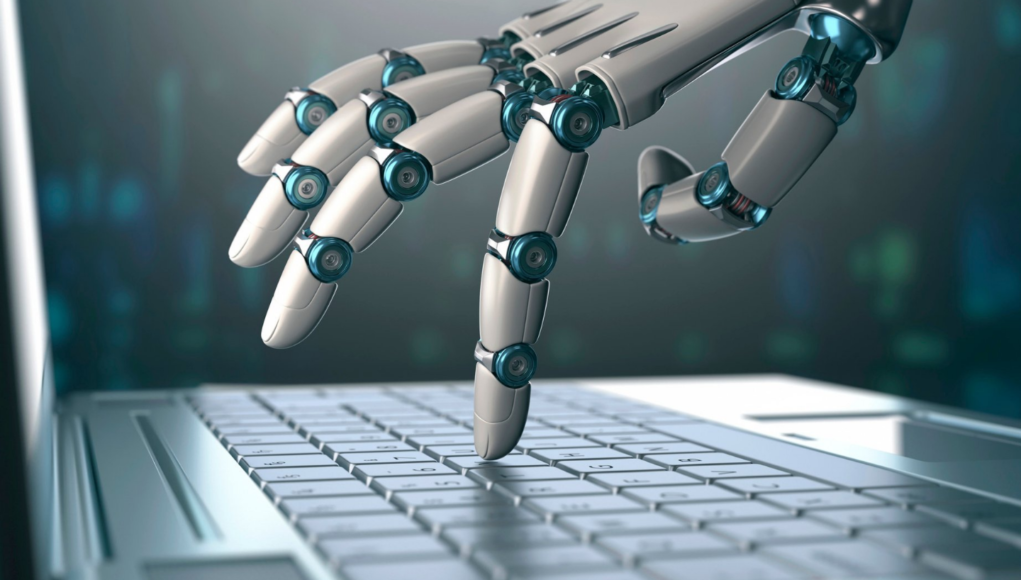The Oxford English Dictionary defines Artificial Intelligence (AI) as “The capacity of computers or other machines to exhibit or simulate intelligent behaviour”. Sounds like something from the realms of science fiction but the reality is that AI is now an increasingly essential part of modern life.
The first example of AI was developed in the 1950s when academics at the University of Manchester wrote a checkers-playing programme to run on the Ferranti Mark 1 machine. Today AI is the science behind advanced web search engines such as Google, Alexa’s ability to understand human speech and Tesla’s self-driving abilities.
Does the future of marketing include AI?
There is a minority in the profession who believe we are heading for a future where the role of humans in marketing will become redundant. A recent study by Phrasee (a brand language optimisation consultancy) found that AI is playing an increasing role in marketers’ technology investment, with 63% saying they would consider investing in AI to generate and optimise copy – up from just 36% of respondents in 2020.
Bernard Marr, a strategic business and technology advisor, and Forbes magazine contributor makes a case for the use of AI in marketing saying it makes your marketing, often one of a company’s biggest expenses, more efficient.
“In the online age, we’ve developed the ability to learn a great deal about who is or isn’t interested in our products and services. With content-based marketing, AI lends a hand by helping us work out what type of content our customers and potential customers are interested in and what the most efficient ways are to distribute our content to them.”
But what about the reality of using AI to create content?
Alex Bussey is a freelance digital marketing consultant at Red Evolution who is not convinced there are many benefits. He tried Jarvis AI for three months earlier this year,
“Nine times out of 10, the tool output content sounded wooden, recycled or (dare I say it) robotic. Sentences sounded great in isolation but when it came to producing more than one paragraph of content it became blindingly obvious that the so-called AI couldn’t contextualise the information it was recycling or develop on the entry-level thoughts it produced. In the end, I was forced to rewrite everything the software output, which meant that I wasn’t saving any time or effort vs. writing the content myself.”
Charlotte Chamberlain, Content Writer at Tao Digital Marketing agrees,
“I find that AI adds an additional step in the writing process that will inevitably result in longer lead times.
AI content is still not intelligent enough to be used as it is produced – it needs rigorous editing, formatting, and tweaking to fit the client tone of voice, content topic and in some cases, to maintain grammatical integrity.
AI will work for some and not for others. I don’t believe that it will ever replace the copywriter role entirely as AI lacks human understanding, tone, and creativity. As content writers, we want our work to connect with people, to be relatable and to be understood. I feel as though you can only connect with others through words when those words are fuelled by human emotion, passion and drive.”
Andreina West, Director at PR Artistry, sees the lack of human creativity as the main barrier to widespread AI adoption,
“People buy people first – AI-generated content may be OK for product descriptions, instructions, and documentation. The type of content that needs to be written but it’s more of a chore than a delight.
Attracting the attention of human readers, with all their quirks and foibles, needs a human touch. As algorithms become more and more commoditised and homogenised it will take human creativity to write something completely different and eye-catching.”
Rebecca Nicholson, senior content executive for The Audit Lab, is more optimistic about the use of AI in content and is hoping for a friendship,
“I’ve been seeing some tools lately introducing AI for content and as a copywriter, you do have that initial “It’s happening, the robots are coming for our jobs” panic, but I’m actually not as fearful. I’m a big fan of AI and find it fascinating, looking back at what we’ve been able to accomplish and the way productivity has increased.
As a content writer who works to improve SEO for websites, AI could actually help with admin and spotting link opportunities. If you could programme it to include a focused keyword and check a cluster of relatable terms/keywords to fit nicely within the content or find past content on a site to do the same for, you can work together with the machines. You bring creativity and it ticks the tech boxes for you. I see it as more of a dream team than a replacement.”
Mike Harrison, Inbound Marketing Director at communications and PR agency Essential, feels that AI’s priorities will be to create content that appeals to Google, not to consumers,
“Whilst AI makes us more efficient, increases output and saves us money. It not only removes the human aspect of the content we create, but it depletes content of insight and makes us lazy as marketeers. The reality is that AI is writing for AI: what do I mean by that? AI writing performing SEO content for Google and not for real human readers.”
How will AI play a part in the marketing role of the future?
There is no doubt that AI will form part of the marketing mix in the future but to what extent is it still to be discovered?
The traditional copywriter role will inevitably change as AI becomes more sophisticated and more useful. Writers and marketers will likely spend less time on the technical tasks of customer analysis and forecasting and more time on the creative. Adoption of AI may also see copywriters spared from writing basic copy, freeing up their time to concentrate on creating engaging, complex messaging.
While it seems, in reality, the limitations of AI is still making it more of a hindrance than a help for content creators, current predictions state that AI will end up bringing many benefits and creating more jobs than it destroys.
Those marketers and copywriters who are willing to accept this and take steps to understand how AI will work in the modern marketing mix will be best prepared for the future.








